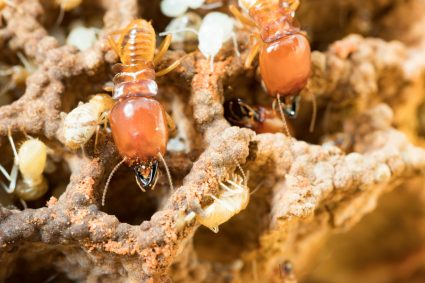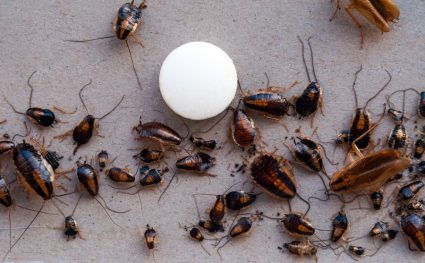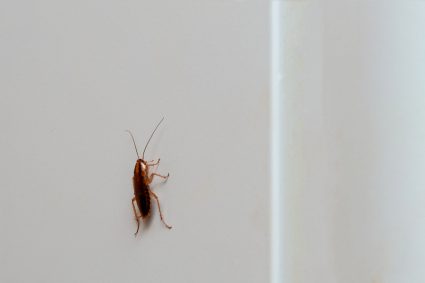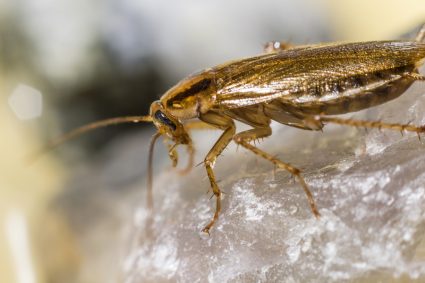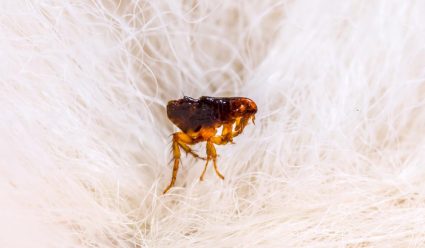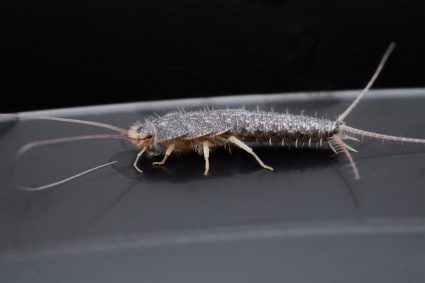
Termites may be small, but they pose a significant threat to homeowners worldwide. These wood-loving insects can cause extensive damage to structures, often leading to costly repairs. As a result, homeowners are always seeking effective ways to deter these pests. One such method is using specific scents known to deter termites. In this article, we delve into the world of termite deterrence, focusing on the scents that these insects dislike and how to use them effectively.
Certain scents can deter termites, including cedarwood, geranium, tea tree oil, and others found in essential oils like rosemary, dill, garlic, clove, and the mint family. These scents can be used in homes and businesses by using cedarwood planks, spraying essential oils, or planting certain plants like mint, lemongrass, or catnip. However, these are not long-term solutions and professional pest control services may be needed for a comprehensive solution.
The Most Effective Scents That Deter Termites
Several scents have been found to deter termites, including cedarwood, geranium, and tea tree oil. These scents are believed to be effective due to the presence of specific chemicals that termites find unattractive or harmful.
Cedarwood contains allelochemicals, which termites do not like. Although termites are not repelled by the cedarwood smell itself, they are less attracted to this wood due to the presence of these chemicals.
Geranium and tea tree oil are also known to deter termites. These essential oils, along with others like rosemary, dill, garlic, clove, and the mint family, can be used as repellents and planted in strategic locations around your home to help deter termites from your property.
Scientific Evidence
There is scientific evidence supporting the claim that certain scents, particularly those found in essential oils, can deter termites. A study conducted by entomologists at UC Riverside found that methyl salicylate, or wintergreen oil, was effective against individual western drywood termites. Another study from Cornell University’s Cooperative Extension Service concluded that lemongrass oil is effective at repelling subterranean termites. Clemson University scientists reported that termites dislike the smells of cedarwood, geranium, and tea tree oil, as well as clove bud, cinnamon, and garlic oils.
Using Scents in Homes and Businesses
There are several ways to use these scents effectively in homes or businesses:
- Cedarwood: Use cedarwood planks or logs around your property to deter termites.
- Essential oils: Mix these oils with water and spray them around the foundation of your home or business, near windows, doors, and other potential entry points.
- Mint: Plant mint around your property, as its strong odor can be effective in repelling termites.
- Lemongrass: Grow lemongrass plants in your garden, as the smell of lemongrass is known to repel termites.
- Catnip: Plant catnip around your home’s foundation and other potential entry points, as it contains nepetalactone, a natural insect repellent.
While these scents and plants can help prevent termite infestations, it is essential to consult a professional pest control company for a thorough inspection and treatment if you suspect an existing infestation.
Drawbacks and Limitations
Despite their benefits, using scents as a termite deterrent does come with limitations. Scents may provide a temporary deterrent, but they are not a long-term solution for termite control. Termites may eventually adapt to the scents or find alternative routes to infest your home. Furthermore, scents may not be effective against all termite species or in all situations.
Safety Concerns
While termites repellents can be an effective method of deterring pests, it’s important to consider the potential safety concerns for humans and pets. Some termite treatments, such as liquid termiticides, are considered safe once they have dried. However, there are potential health risks associated with termite treatments, especially if homeowners attempt to handle the chemicals themselves without proper training.
Conclusion
While scents may provide some level of termite deterrence, they are not a comprehensive solution for termite control. It is essential to consider other methods, such as professional pest control services, to ensure the complete elimination of termites from your home.
Frequently Asked Questions
How often should I apply essential oils to deter termites?
Essential oils should ideally be applied once a month. However, this frequency may need to be increased during the rainy season when the scent can easily be washed away.
Can I use a combination of these scents to deter termites?
Yes, using a combination of these scents can potentially increase their effectiveness. However, you should always perform a patch test to ensure that the mixture is not harmful to your plants or pets.
Are there any other natural ways to deter termites?
Yes, other natural methods include using beneficial nematodes (microscopic worms) that are natural predators of termites, or using boric acid, a natural pesticide, around the perimeter of your home.
Are there specific areas of the home that are more susceptible to termite infestation?
Yes, termites are particularly attracted to damp, dark areas. Therefore, places like basements, crawl spaces, and wooden structures in contact with the soil are more susceptible to termite infestation.
Can I handle a termite infestation on my own using these scents?
While these scents can aid in termite deterrence, they are not a comprehensive solution. If you suspect a termite infestation, it is always best to contact a professional pest control service to ensure the complete elimination of termites from your home.

